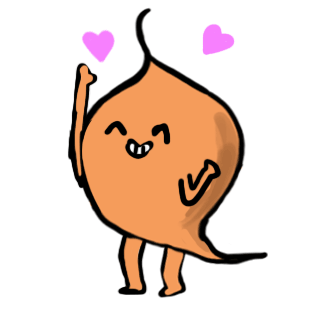Two years ago—before Shuffle 8 Games was even an idea—I signed up for My First Game Jam on itch.io. I had no studio, no team, and no idea what I was getting into. What I did have was curiosity, some Unity skills, and a burning desire to try something new.
The result? A 2D survival arcade called Zombie Friends, where you shoot zombies with a healing gun to bring your infected friends back to life. It was chaotic, exhausting, occasionally frustrating—and one of the most fulfilling things I’ve ever done.
This post is a reflection on that experience: what I learned, what I’d do differently, and why solo game jams are one of the best ways to grow as a developer.
The Premise: Heal Zombies, Don’t Kill Them
The game jam theme was open-ended, so I focused on keeping the idea small but quirky. After bouncing a few concepts around, I landed on a first-person 2D survival arcade where the goal wasn’t to destroy, but to heal. I had some doubts at first, but I reminded myself of something I kept hearing from other devs online:
“Keep it simple. Less is more.”
And that became my guiding light.
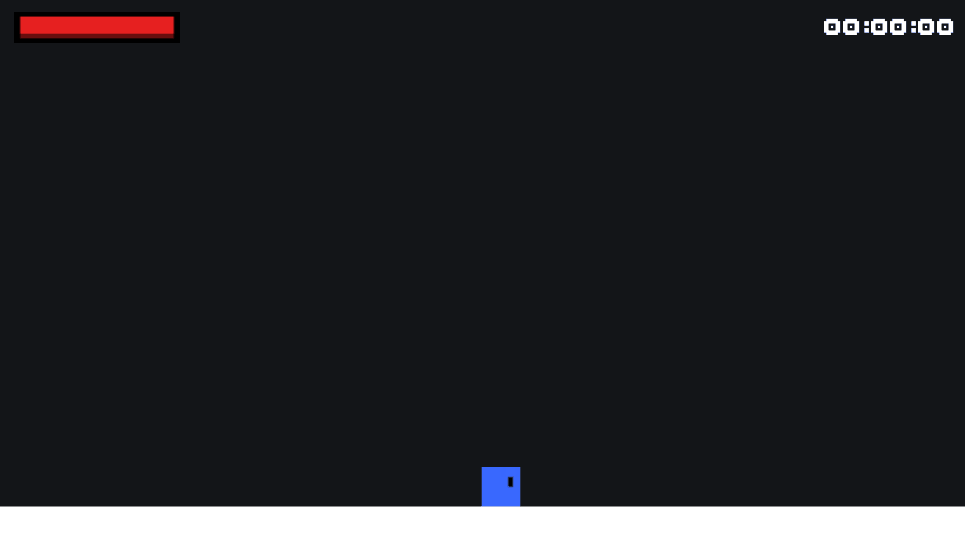
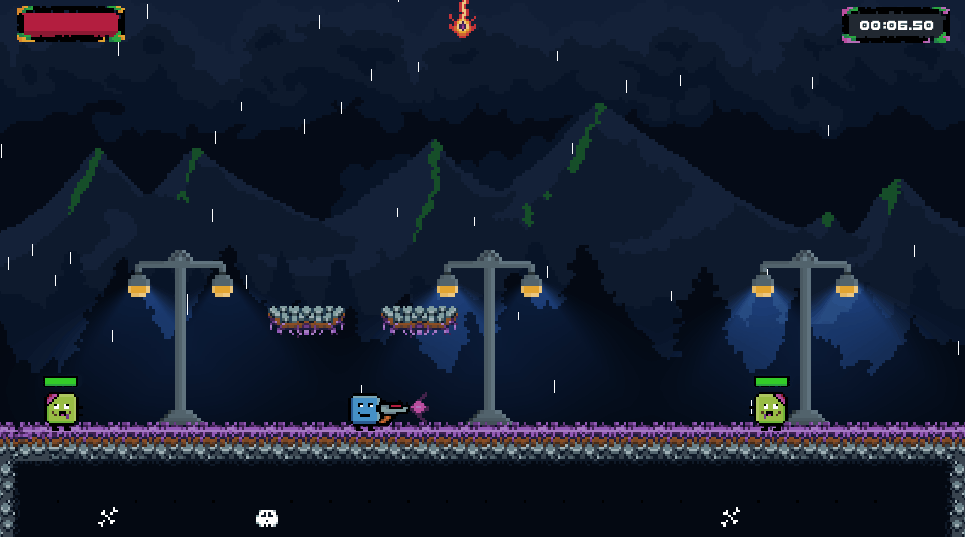
Planning: The Pre-Jam Secret Weapon
Before diving into development, I laid out a full roadmap. I broke the entire project down into small daily tasks—movement, shooting, enemy behavior, UI, effects, etc.—and estimated how long each would take.
That schedule didn’t just keep me on track. It gave me direction, reduced stress, and helped me avoid getting distracted by shiny new ideas (well… mostly).
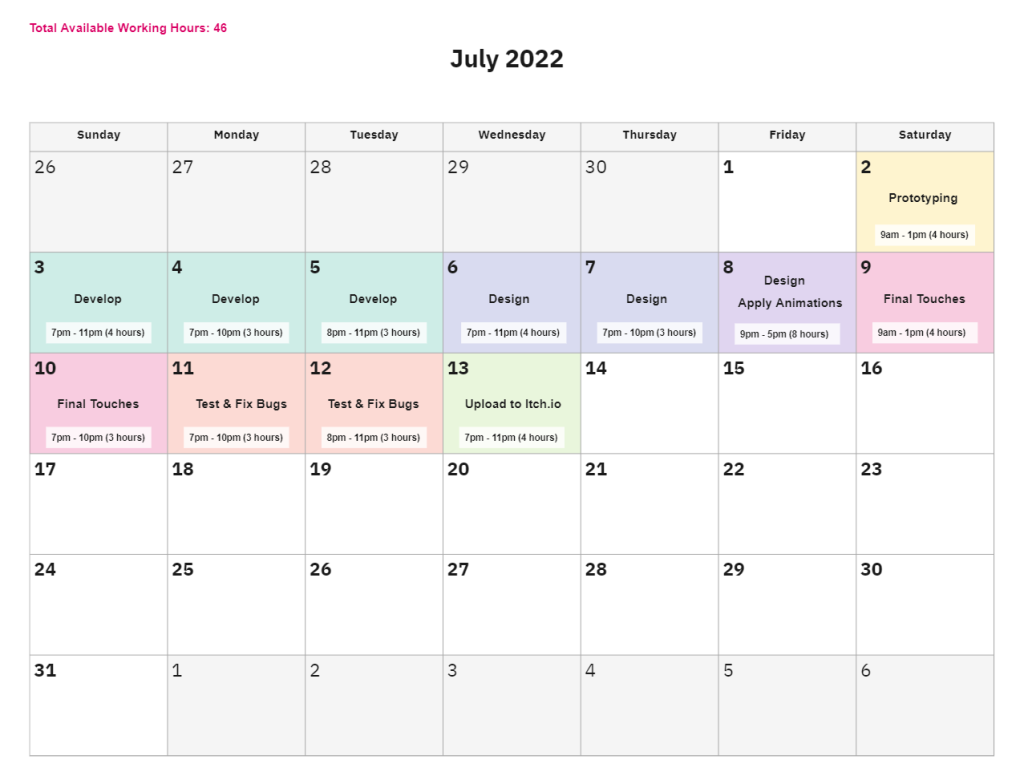
The Grind: Wearing Every Hat
As a solo dev, you are the studio. Every day was a crash course in something new:
- One day I was programming the healing mechanic.
- The next, I was fumbling my way through character animation.
- Later in the week, I was figuring out how to make sound effects using free audio tools I barely knew how to open.
Sometimes it was painful—like realizing the characters didn’t look remotely how I imagined. Other times it was exhilarating, like finally getting the healing beam to connect and trigger a happy zombie animation.
But most days, it was both. And that’s the magic of solo game dev.
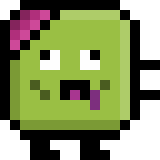
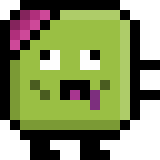
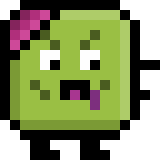
What Worked (and What Didn’t)
✅ What Worked
- Cutting features early: I removed anything that wasn’t essential to the core mechanic. That gave me time to polish what really mattered.
- Scheduling everything: Having a clear daily goal helped me avoid burnout (well, until the last few days).
- Post-jam iteration: After the jam ended, I kept working on the game and released Zombie Friends v2.0—with ammo pickups, new effects, better difficulty balance, and more mechanics. That second version felt more like the game I wanted to submit.
❌ What Didn’t Work
- Time management: Even with a plan, I often spent way too long perfecting things that could’ve waited. The final days were full of late nights and heavy eyelids.
- Trying to do everything: I took on art, sound, and development all at once. That was a great learning opportunity, but also overwhelming at times. Next time, I’d consider collaborating—or at least preparing a few assets ahead of time.
Post-Jam: The Second Version
One thing I didn’t expect was just how much fun it would be to keep working on the game after the jam. Inspired by feedback from the jam community, I spent the following weeks adding:
- Ammo limitations and pickups
- Supercharged healing blasts
- Shield mechanics
- Knockback and poison hazards
- Improved UI and clearer difficulty progression
The game evolved, but so did I. Every bug, every workaround, every small feature I got to work—it all added up.
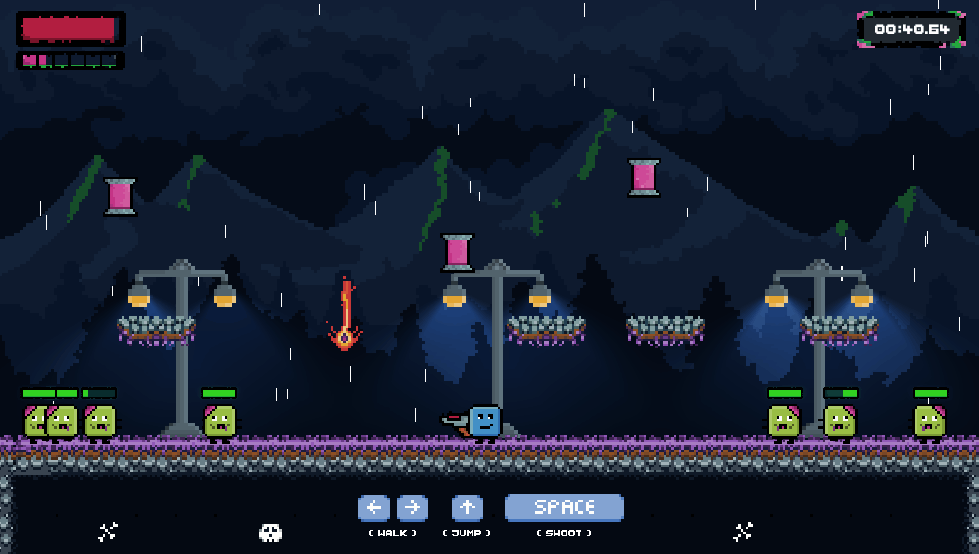
Final Thoughts
Game jams aren’t just a test of development skills. They’re a test of patience, prioritization, and persistence. And when you’re doing it solo, the lessons come fast and hard—but they stick.
This jam happened before Daniel and I started Shuffle 8 Games. Looking back now, it feels like a personal milestone—proof that I could take an idea from sketch to finished product, even if it wasn’t perfect. That experience gave me the confidence I needed to eventually build something bigger, with a team, and with a vision.
So if you’re a solo dev out there wondering if you can pull off a game jam on your own—you can. It won’t be easy, but it’ll be worth it.
And if you’re already running a studio? Encouraging your team members to do solo jams could be the fastest way to grow their skillsets and strengthen their creative confidence.
I went into this jam hoping to make something playable.
I came out of it knowing I could make games.
—
